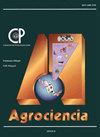RATIONAL MANAGEMENT OF INSECTICIDES IN MONOCULTURE AREAS
IF 0.5
4区 农林科学
Q4 AGRICULTURE, MULTIDISCIPLINARY
引用次数: 0
Abstract
In Mexico, some monocultures occupy large areas, and organo-synthetic insecticides are the dominant method of pest control. The conventional chemical strategy is heavily reliant on new insecticides being developed in other countries. This paper discusses the characteristics of traditional/conventional and rational insecticide management. In traditional management, companies compete to position their products in the market once authorized. When pests develop resistance, the farmer must increase the dose and frequency of applications. These actions seriously threaten the environment, human health, and crop profitability. The hope is that another insecticide will enter the market to repeat the cycle of abuse and its consequences. The alternative is a rational strategy based on scientific evidence for chemical pest control. Farmers must adhere to an insecticide resistance management program that keeps resistance gene expression and intensity at acceptable levels. We propose the creation of public and private laboratories to systematically estimate the dynamics of insecticide resistance through bioassays. This will enable decisions to be made based on scientific rather than commercial information. Changing the current paradigm for the use of these agrochemicals will result in significant improvements in the time it takes to maintain acceptable biological efficacy, economic benefits to the producer, and significant reductions in adverse effects on human health and the environment.单一种植区杀虫剂合理管理
在墨西哥,一些单一栽培作物占据了大片土地,有机合成杀虫剂是控制害虫的主要方法。传统的化学策略严重依赖于其他国家正在开发的新杀虫剂。本文讨论了传统/常规和合理杀虫剂管理的特点。在传统的管理中,一旦获得授权,公司就会竞争自己的产品在市场中的定位。当害虫产生抗药性时,农民必须增加剂量和施用频率。这些行为严重威胁着环境、人类健康和作物的盈利能力。人们希望另一种杀虫剂进入市场,重复滥用的循环及其后果。另一种选择是基于科学证据的化学害虫防治的理性策略。农民必须坚持杀虫剂抗性管理计划,将抗性基因的表达和强度保持在可接受的水平。我们建议建立公共和私人实验室,通过生物测定系统地估计杀虫剂抗性的动态。这将使人们能够根据科学信息而不是商业信息作出决定。改变目前使用这些农用化学品的模式,将大大缩短维持可接受的生物功效所需的时间,给生产者带来经济利益,并大大减少对人类健康和环境的不利影响。
本文章由计算机程序翻译,如有差异,请以英文原文为准。
求助全文
约1分钟内获得全文
求助全文
来源期刊

Agrociencia
农林科学-农业综合
CiteScore
0.50
自引率
33.30%
发文量
51
审稿时长
18-36 weeks
期刊介绍:
AGROCIENCIA is a scientific journal created and sponsored by the Colegio de Postgraduados. Its main objective is the publication and diffusion of agricultural, animal and forestry sciences research results from mexican and foreign scientists. All contributions are peer reviewed. Starting in the year 2000, AGROCIENCIA became a bimonthly and fully bilingual journal (Spanish and English versions in the same issue). Since 2007 appears every month and a half (eight issues per year). In addition to the printed issues, the full content is available in electronic format.
 求助内容:
求助内容: 应助结果提醒方式:
应助结果提醒方式:


